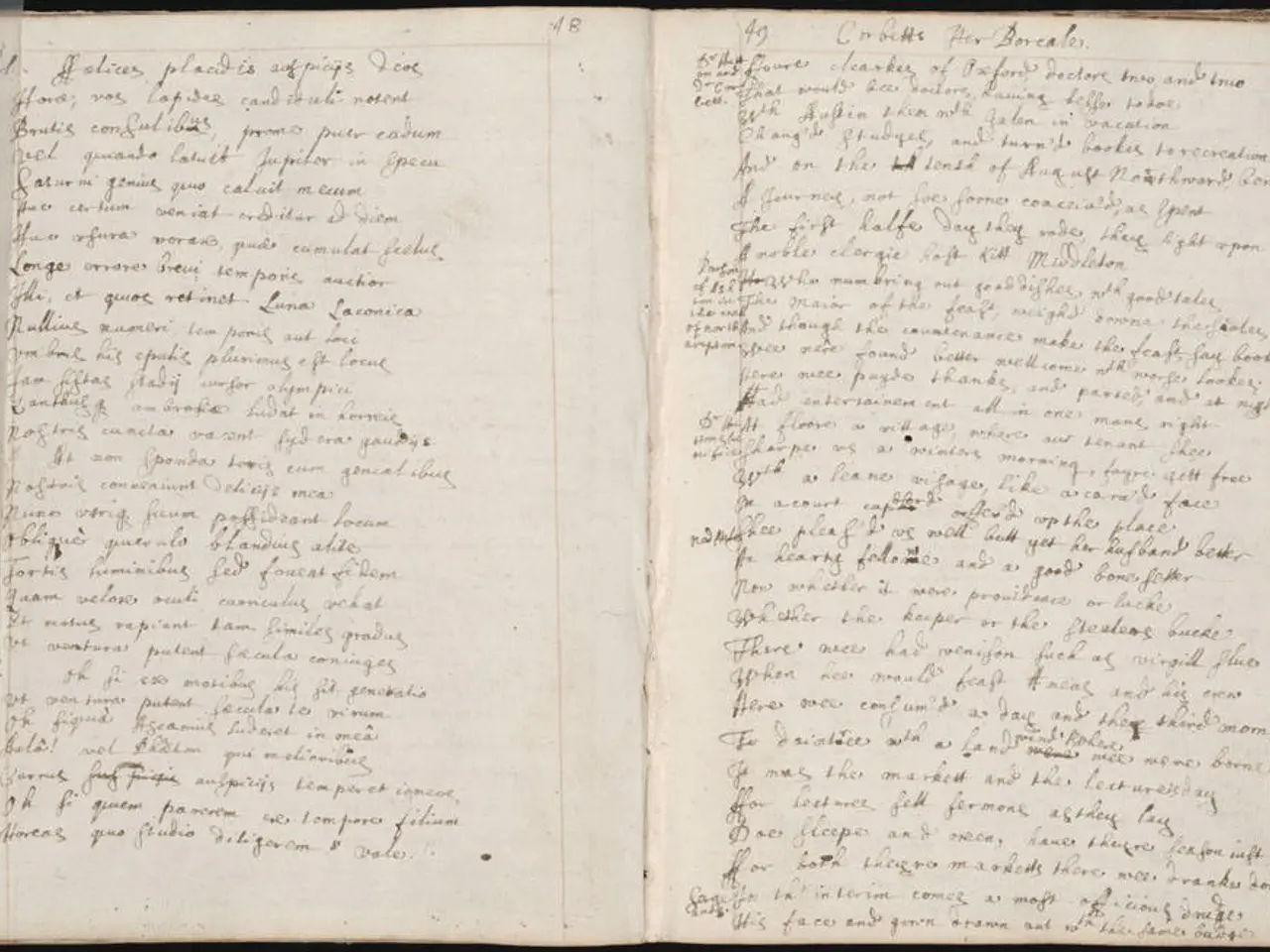Top Recommended Self-help Books Suggested by Psychologists
Self-help books have become a popular resource for those seeking guidance on personal growth, mental well-being, and overall quality of life. While they can provide valuable insights and practical advice, it's important to remember that they should complement professional therapy rather than replace it.
One such self-help book is "Failed Forward" by John C. Maxwell, offering tools for managing negative thoughts and emotions after making a mistake. Another notable book is "The Attention Revolution" by Alan Wallace, providing strategies to cultivate focus and mindfulness.
Astronaut Chris Hadfield's self-help book "An Astronaut's Guide to Life on Earth" shares reflections on life from a unique perspective, helping readers understand what is truly important. Similarly, Psychiatrist Viktor Frankl's self-help book "Man's Search for Meaning" offers insights from his experiences in Nazi concentration camps, emphasizing the importance of attitude towards life.
To choose the right self-help book, it's crucial to identify your goals or challenges and select a book that aligns with your needs or resonates with you. For instance, "Eat That Frog!" by Brian Tracy provides strategies for time management and productivity, while "Mindsight: The New Science of Personal Transformation" by Daniel J. Siegel focuses on emotional intelligence and mindfulness.
Many self-help books are rooted in psychological research, but it's essential to choose books authored by credible professionals. Books like "Think, Fast and Slow" by Daniel Kahneman, a Nobel Prize-winning economist, explore the two types of thoughts that affect decision-making and perspective.
Psychologists often recommend self-help books as complementary tools for therapy or personal growth. For example, "Reinventing Your Life" by Jeffrey Young & Janet Klosko uses cognitive therapy principles to help identify and change negative life patterns. "Mind Over Mood" by Dennis Greenberger & Christine A. Padesky is a manual written by clinical psychologists that teaches CBT techniques through worksheets.
Books like "Overcoming Depression" by Paul Gilbert and "Overcoming Depression and Low Mood" by Chris Williams are evidence-based CBT books that explain causes of depression and offer practical strategies to manage symptoms and related issues like shame and perfectionism.
"Why Has Nobody Told Me This Before?" by Dr. Julie Smith offers a modern, accessible guide offering practical coping techniques for everyday mental health challenges such as anxiety, low mood, and building self-confidence. It acts like a “therapist toolkit” for resilience.
Books recommended by Jonathan Haidt and other eminent psychologists, such as The Happiness Hypothesis and Emotional Alchemy by Tara Bennett-Goleman, are also valued for their scientific foundations in understanding happiness and emotional healing.
Less clinical but influential self-help books include Louise Hay’s You Can Heal Your Life, which advocates mental work for healing but is more experiential than clinical.
It's important to remember that self-help books should never be seen as a substitute for psychological therapy received by a professional, but can form a complementary part of the therapy when deemed appropriate by the professional. Consistency is key when reading self-help books, even dedicating 15-30 minutes daily can yield positive results.
In conclusion, self-help books offer practical advice, strategies, and inspiration to improve mental well-being, relationships, and overall quality of life. By choosing books that align with your needs and resonate with you, you can take the first step towards personal growth and improvement.
- The book "Failed Forward" by John C. Maxwell offers tools for managing negative thoughts and emotions after making a mistake, contributing to personal growth and mental well-being.
- "Mindsight: The New Science of Personal Transformation" by Daniel J. Siegel focuses on emotional intelligence and mindfulness, providing strategies for personal growth and self-help.
- Astronaut Chris Hadfield's book, "An Astronaut's Guide to Life on Earth," shares reflections on life from a unique perspective, offering insights for personal growth and lifestyle.
- Books like "Reinventing Your Life" by Jeffrey Young & Janet Klosko use cognitive therapy principles to help identify and change negative life patterns, contributing to personal growth and mental health improvement.
- "Man's Search for Meaning" by Psychiatrist Viktor Frankl offers insights from his experiences in Nazi concentration camps, emphasizing the importance of attitude towards life, personal growth, and mental health.




